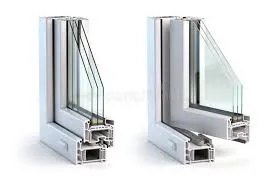Durable Cast Iron Collars for Enhanced Support and Stability in Various Applications
The Versatility and Strength of Cast Iron Collars
Cast iron collars have long been an essential component in various industrial applications, renowned for their strength, durability, and versatility. As a subset of cast iron products, collars exhibit remarkable structural properties that make them ideal for supporting, connecting, and securing diverse components across multiple sectors. This article explores the characteristics, applications, and advantages of cast iron collars.
Characteristics of Cast Iron Collars
Cast iron, an alloy of iron enriched with carbon (typically 2-4% carbon) and silicon (about 1-3%), is known for its excellent castability and machinability. This material can withstand high temperatures, making it suitable for applications involving heat exposure. Cast iron collars are characterized by their significant tensile strength, excellent wear resistance, and rigidity. These features allow them to endure substantial mechanical stress without deforming. Moreover, cast iron has a good damping capacity, which reduces vibrations—an essential feature in industrial machinery.
Applications of Cast Iron Collars
Cast iron collars are utilized in various industries, including construction, automotive, and manufacturing. In the construction sector, they serve as critical components in piping systems, where they connect pipes securely, ensuring minimal leakage and maximum stability. Specifically, cast iron collars are often employed in sewer and drainage systems, where their robust structure can withstand harsh environmental conditions.
In the automotive industry, cast iron collars are essential in transmission systems, providing secure fittings for gears and shafts
. Their superior strength ensures reliable performance, as the collars resist wear even in high-stress scenarios. Additionally, in the manufacturing sector, these collars are commonly found in machinery components, where they play a pivotal role in securing parts together to maintain efficiency and safety during operation.cast iron collars

Advantages of Cast Iron Collars
One of the primary advantages of using cast iron collars is their cost-effectiveness. Compared to other metals such as stainless steel or aluminum, cast iron is generally more affordable while offering similar structural benefits. Additionally, the longevity of cast iron—often exceeding that of other materials in the same application—adds to its overall value. With proper maintenance, cast iron collars can last for decades, minimizing the need for frequent replacements.
Another benefit is the sustainability of cast iron. Since it is often manufactured from recycled materials, using cast iron collars can contribute to more eco-friendly construction practices. This aligns with growing industry trends towards sustainability and responsible sourcing of materials.
Furthermore, the aesthetic appeal of cast iron should not be overlooked. Many architects and designers appreciate the rustic charm and historical significance of cast iron, making it a popular choice in architectural applications where appearance is as crucial as functionality.
Conclusion
Cast iron collars represent a blend of durability, versatility, and reliability, making them indispensable in numerous industries. Their robust design ensures they can bear significant loads while providing stability in a multitude of applications. From construction and automotive to manufacturing, these collars offer a unique combination of strength and cost-effectiveness that few other materials can match. As industries continue to evolve, cast iron remains a timeless solution that meets modern needs while maintaining a link to traditional craftsmanship. In an era where sustainability and durability are paramount, cast iron collars are poised to remain at the forefront of industrial applications for years to come.
-
Wrought Iron Components: Timeless Elegance and Structural StrengthNewsJul.28,2025
-
Window Hardware Essentials: Rollers, Handles, and Locking SolutionsNewsJul.28,2025
-
Small Agricultural Processing Machines: Corn Threshers, Cassava Chippers, Grain Peelers & Chaff CuttersNewsJul.28,2025
-
Sliding Rollers: Smooth, Silent, and Built to LastNewsJul.28,2025
-
Cast Iron Stoves: Timeless Heating with Modern EfficiencyNewsJul.28,2025
-
Cast Iron Pipe and Fitting: Durable, Fire-Resistant Solutions for Plumbing and DrainageNewsJul.28,2025
-
 Wrought Iron Components: Timeless Elegance and Structural StrengthJul-28-2025Wrought Iron Components: Timeless Elegance and Structural Strength
Wrought Iron Components: Timeless Elegance and Structural StrengthJul-28-2025Wrought Iron Components: Timeless Elegance and Structural Strength -
 Window Hardware Essentials: Rollers, Handles, and Locking SolutionsJul-28-2025Window Hardware Essentials: Rollers, Handles, and Locking Solutions
Window Hardware Essentials: Rollers, Handles, and Locking SolutionsJul-28-2025Window Hardware Essentials: Rollers, Handles, and Locking Solutions -
 Small Agricultural Processing Machines: Corn Threshers, Cassava Chippers, Grain Peelers & Chaff CuttersJul-28-2025Small Agricultural Processing Machines: Corn Threshers, Cassava Chippers, Grain Peelers & Chaff Cutters
Small Agricultural Processing Machines: Corn Threshers, Cassava Chippers, Grain Peelers & Chaff CuttersJul-28-2025Small Agricultural Processing Machines: Corn Threshers, Cassava Chippers, Grain Peelers & Chaff Cutters












